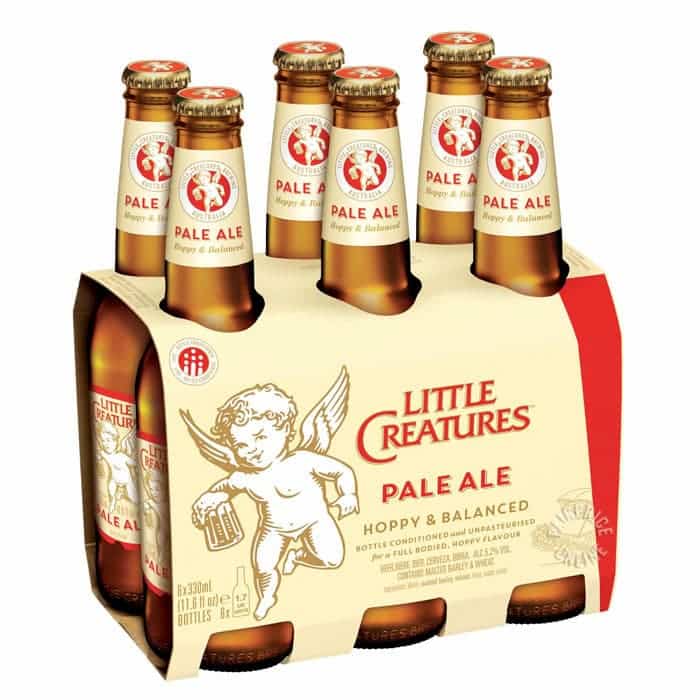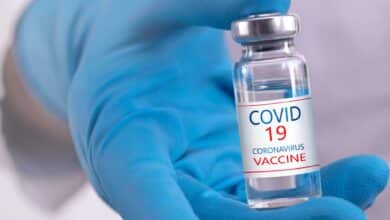Success on tap: Little Creatures brew up a global storm
There is an old proverb that says, ‘Give a man a beer, he wastes an hour. Teach him to brew, and he wastes a lifetime.’ Little Creatures co-founder, Howard Cearns, would disagree. This is the story of how he and three friends created a marketing juggernaut on the site of a crocodile abbatoir.
Mmm, beer. It’s a journalist’s dream assignment and competition is stiff in the Nett office over the impending trip to the Little Creatures brewery in Fremantle, WA. As each contender is swiftly eliminated, it’s finally between myself and one of the lads, who’s easily disqualified when past on-location indiscretions are revealed.
As the official beer connoisseur of the team, I promise not to get drunk and disorderly, pack an arsenal of Nurofen and Vitamin B and head west to discover if life really is peaceful there. And to bring back the story behind Little Creatures, the boutique brewing operation started eight years ago by three corporate refugees who, quite simply, wanted to create beer they love drinking.
Fremantle is the perfect town for beer-brewing. Known as ‘Freo’ to the locals, the historical seaport is a 20-minute drive from Perth and boasts the state’s oldest convict gaol. The Little Creatures brewery is situated on the water near the fishing docks. By night, the converted shed is packed to its 500-head capacity with tourists, families, and young locals who are tended to by the sort of ultra-hip Gen Y-ers you would expect to find in the inner suburbs of the larger capital cities.
Through glass windows, the punters can see the entire brewing operation in what Howard calls the “ultimate cellar door experience.” With a passing resemblance to actor Billy Bob Thornton, Howard is one of a trio of business partners, all in their late 40s, who between them have more than three decades of experience in the brewing industry.
“We opened about eight years ago,” Howard says from a booth in the bar, the mezzanine level of which doubles as a free art gallery for aspiring local exhibitors.
“My partners Phil Sexton, Nic Trimboli, and I were at the Matilda Bay brewery (launched in 1984, it was the first new brewer in Australia since WWII and was later bought out by Fosters in the early 1980s). In 1997, we started noticing what was going on in the US craft brewing industry. There were some amazing styles of beers being made and we loved the pale ale in particular. We wanted to put our own spin on it, so we built our own brewery. We also wanted to integrate more of a winning mentality. When you go to a winery, you feel like you’re going to the cellar door in the vineyard. When you come and drink here, you should feel as if you’re coming into the brewery; it surrounds you, you can hear noises and smell hops…”
Although Howard claims the three partners had already learned most of their big business lessons in the corporate arena, Little Creatures was not an overnight success story.
“It hasn’t actually grown that fast,” Howard says. “One of the tough lessons we learned in prior lives was that there’s a pace to these things. Little Creatures was about not going too fast or doing too much. It was about doing simple things really well. It was all quite measured.
“We started the business hand-selling cartons of beer and driving a Kombi Ute loaded with kegs of beer to a handful of local pubs,” he continues. “We did launch nationally but were selling minute amounts to each market – if we sold a pallet (60 cases) of beer in our early days we were happy.
Today it’s different, but then we couldn’t get ahead of ourselves because the market wasn’t ready. We had to give people the beer, explain why it was different, and then bore them to tears with how passionate we were about something as basic as a hop flower. That’s what we did for four years, without any great desire to push too hard. I think a lot of people make the mistake of focusing too much on sales volume.”
“Beer makes you feel the way you ought to feel without beer.” — Henry Lawson
Our first night in Fremantle. The photographer, art director, and I arrived at the brewery to scope it out for the following day’s photoshoot. During the car ride from Perth, plans were made for a loud night of revelry that would show the locals how it’s done. What actually happened was that everyone was tired from a long day, beginning on Sydney time. After quietly sampling a few fine brews, the art director, having failed to elicit the interest of a charming Irish waitress, announced he was bowing out of the proposed mayhem. I concurred. We left our photographer to retire to his mini-bar in disgust.
The next morning I spy the unused Nurofen and realize the Nett team has failed to organize a piss-up in a brewery. I tell the sorry tale to our bemused host, but he assures me kindly that Little Creatures is not about excess. “Australian beer drinking has its history in standing around at the bar and drinking, and not drinking for flavor, drinking for…”
Excess? “Well, that and perhaps the refreshment factor. What we’re trying to do is create beers that have flavor and complexity, but we also feel there are some traditional things you need to deliver. It’s easy to make something that’s got huge flavor but is difficult to drink. Finding the balance between flavor and structure is very important to us. We’re trying to make beers that are less about quantity and volume and excess, and more about being great.”
This low-key approach has been key to the beer’s success in penetrating a marketplace already crowded with hundreds of products from over 40 breweries.
Nett asks what emotions they wanted people to feel around their brand – apart from drunk. “We’ve got a particular product, but it’s not like we’ve got a specific target market,” Howard replies. “We find the people who pick up on it are not a trendy crowd: it’s the engineers, the computer geeks, the design crowd who are looking more at what’s in the bottle than how it’s dressed. In our early years we looked at dressing things up to gain attention, but these days it’s almost about dressing things down.
“It’s about getting the beer into people’s hands and saying, ‘Fall in love with this, not with the label – and don’t fall in love with me.’ Although,” he laughs, “I wish that would happen sometimes.”
“A wise man invented beer.” Plato
It’s not just the beer that makes Little Creatures unique. The management structure of the company, Howard says, is very flat. “When we started, we were pretty much all in one room out the back,” he tells. “It used to be a crocodile park and we haven’t altered the structure a lot, even though we gutted the place. Out the front, they had tourist ponds and out the back was an abattoir, so we turned the abattoir into an office space. There were Nic and me and the guy who ran the hospitality and the salespeople, so you could hear just about every conversation. From that came our attitude of, ‘let’s deal with issues right now. I can hear you’ve got a problem. Let’s solve it. It was a pretty transparent, sometimes brutally honest environment. There weren’t a lot of meetings, because meetings kind of happened in corridors, or that room.
“In terms of the driving force behind the business, there are really two layers. The three operational founders, Nic, Phil, and I, who’ve been in this game for a long time, made some mistakes, worked hard, and loved it. But this business is a young game, so the drive also comes from young people who lead the various divisions, with a lot of responsibility for their age.
“You’ve got this layer of, dare I say, old codgers who are providing some guidance, direction, and passion, but the drive also comes from people on the floor. They are not particularly guided to look a certain way, but we want them to be professional and passionate. Most of them have done brews, so if you ask them about a beer, they should be able to tell you how it’s made and give you a good experience with it. There’s substance to it.”
Howard admits that the key to accessing younger creative people is having good creative judgment.
“We’re not necessarily fabulously creative people ourselves,” he confesses, “but we’d like to think we can spot a good idea or listen to one. We have a team of people that don’t necessarily work here all the time but are part of the network. If we want an idea for a particular corner of the building, or for a package, or the name of a new beer, we just go out and talk to people. We don’t do a lot of formal research.”
Similarly, the guys who run the sales team are not really slick sales types. They might have come from the hospitality floor, or from quite a different occupation, and they’ve ended up driving the streets, telling the story, and selling the beer.
“I think that’s really been missing from the marketplace,” Howard explains. “It’s kind of refreshing. That’s why we do well in Melbourne because we walk the streets saying, ‘Here’s my beer, try it. This is how we make it,’ rather than ‘This is how much it costs, or ‘This is the sexy girl promotion we’re going to do for you.’ We don’t have that conversation.”
“Give my people plenty of good beer and you will have no revolution.” — Queen Victoria
If you’ve been to littlecreatures.com.au and seen the outrageously clever advert, Pintzilla, you can see where the company’s younger influences come into play. Deceptively simple, the 45-second snippet features a pint bottle of Little Creatures Pale Ale being batted around a makeshift model town while a voiceover parodies classic movies. It’s funny and slightly oddball.
An explanation is solicited. “We were one of the first in the country to put beer into a pint bottle. We sell a lot of our beer in pints on the premises, so it made sense to have a pint bottle, which is 568 MLS. We just had some fun with the whole pint-sized idea. A couple of university creative students came up with the idea of Pintzilla, so we drove people to a micro-site off our website called pintzilla.com to see the ad.
“We don’t really have an internet strategy, but it is part of what we do. We spent a lot of time creating the website we wanted when we first launched but weren’t trying to be overly interactive or to use the internet too cleverly. It was mainly just for information. We wanted to make sure people could go to our website and read about the product.”
A core initiative of the internet activity these days is the company blog.
“We’ve tried to use the internet in the way I think the internet should be used, which is warts and all – not trying to hide stuff or deliver a marketing spin,” Howard says. “If things go wrong, we tell people. We have a database of people called ‘Hopheads’ and we send them emails about things that are going on or even a story about something that went wrong.” As things sometimes do.
Several months ago, a batch of ‘Rogers’, Little Creatures’ heaviest brew, went down the lines and under-filled the bottles by 5ml. They couldn’t in good conscience sell it, so a pallet of cases was placed unceremoniously on the main floor of the bar and sold at a discount.
“We sold it as a blooper and it just went,” Howard laughs. “People appreciate it when you admit you’ve made a mistake and are offering them a bargain.”
What’s next then for Little Creatures? “We’re building a brewery in Hillsville in the Yarra Valley and also working on a different regional idea for Victoria, but it might not be called Little Creatures.”
No plans to move the hospitality idea to other states? “Perth is a funny place. There’s a lot of risk-taking and, I guess, a reputation for being a bit like the Wild West. To some extent, that’s true. But underneath, there’s a level of substance. Something has to be good if it’s going to work because it’s such a small market. If you’re going to take it international or to the eastern states, it’d better be bloody good, because the cost of getting it there and making people aware of it is quite high. There’s some really good, grounded stuff that comes out of Perth, despite that element of cowboy ideas that don’t work.
“But no, we’re a Fremantle brewery, and keeping that sense of place is important. We don’t want to be seen as trying to replicate this everywhere. We want to be able to point to Fremantle and say, ‘That’s where we make our beer’. These things are important in a world that is becoming more virtual. A world that constantly tries to consolidate all the time and find greater efficiencies sometimes loses track of the things that made your product great in the first place.”
Our time draws to a close and Howard must dash off to his next meeting. But there’s one final question to ask. ‘What is the perfect hangover cure?’ “It’s more about prevention than cure,” he laughs. “If you drink good beer you won’t have to worry so much about having a hangover. Drink good beer and you’ll be fine.” #
#####
Where the beer blokes click
ratebeer.com and realbeer.com — “In the beer game there’s a good community of no-bullshit websites and a big fraternity of homebrewers and people who know beer.”
www.camra.org.uk — “This UK organization runs a campaign for real ale.
“There’s also beertown.org, one of several US craft brewing sites I visit regularly. We also stay in touch with ingredient websites because malts and grains and hop flowers are important to us. Agriculture is a big part of what we do. With what’s happening to the environment and the demand for quality ingredients around the world, it’s something we need to keep an eye on.”
#####
Brewing a name
“Breweries in this country are always big,” Howard says. “The beer industry is difficult to crack, to be able to establish yourself as a brand in the marketplace is tough. Not many people have done that around the world. If you look at Australia, there aren’t a lot of breweries that have survived outside the big guys. There are lots of little entrants who come in, but to become a national brand is pretty tough.
“We didn’t want to focus too much on volume, so we thought ‘If we have to be small, we’re small. At the time, I was actually reading The Hobbit, which mentions the hobbits and the little creatures going from pub to pub drinking ales. That’s where I picked up the name ‘Little Creatures’.
“The other thing about our product is that we put live yeast in our Pale Ale, and those little creatures (the live yeast) are quite a critical part of our beer.”





